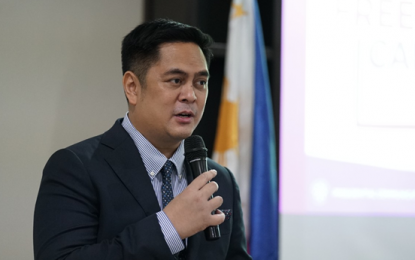
Communications Secretary Martin Andanar
MANILA -- Corruption eradication remains the “utmost priority” of the administration of President Rodrigo R. Duterte, Presidential Communications Operations Office (PCOO) said on Monday.
PCOO Secretary Martin Andanar expressed support with the international community raising awareness against corruption on the commemoration of International Anti-Corruption Day.
“Weeding out corruption in the government and in our society is an utmost priority of the Duterte administration in order for our country to progress and succeed .The necessary mechanisms are constantly being put in place by this administration to curb it as allowing even the littlest act of corruption begets larger and bigger acts which then become the norm,” Andanar said in a statement.
He noted that since this administration has started, it has taken measures against corruption in the country from the national level and local governments to public-private engagements.
Among these anti-corruption efforts include Duterte’s signing of an executive order creating the Presidential Anti-Corruption Commission (PACC) tasked to eliminate all forms of corruption and red tape in the executive department.
As of August 14, two incumbent Cabinet secretaries are being investigated by the PACC since February for supposed involvement in corrupt practices.
Last month, the PACC submitted to the President its findings and recommendations concerning the two Cabinet officials.
Duterte has repeatedly vowed to fire government officials and personnel involved in even a “whiff of corruption”.
He also signed the Freedom of Information Act, which encourages transparency through the policy of the people's rights to get full disclosure on transactions involving public interest.
Other anti-corruption laws signed include Ease of Doing Business and Efficient Government Service Delivery Act of 2018 which enhanced the previous Anti-Red Tape Law.
The new law now covers embassies and consulate offices and has provisions on zero-contact policy between officials or employees and requesting parties; more accountability for officers receiving documents, and shorter processing times for transactions.
“We are doing these initiatives because corruption if left unchecked breeds a looming, degenerative, and abusive culture of bribery, extortion, and embezzlement without any consequence. And if it is allowed to go on, it will oppress people’s freedoms, rights, lives, properties, and their future,” Andanar said.
According to its website, International Anti-Corruption Day is observed every December 9 since the passage of the United Nations (UN) Convention Against Corruption to raise awareness of ways to combat corruption.
Since then, governments, the private sector, non-governmental organizations, the media and citizens around the world have joined forces to fight corruption. (PNA)
